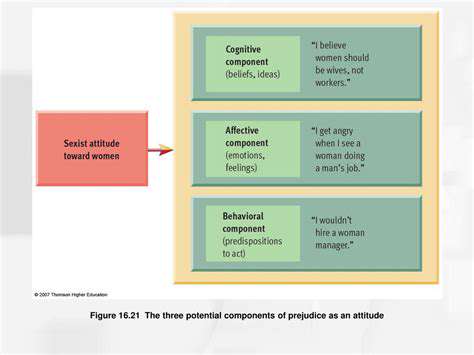The Ethical Side of Personalized Travel Data
Data Collection Practices and Transparency
Data Minimization and Purpose Limitation
A crucial aspect of ethical data collection is minimizing the amount of data collected. Travel companies should only collect the data absolutely necessary to provide the personalized experiences they promise. This means carefully defining the specific purposes for data collection, such as tailoring recommendations, optimizing route planning, or ensuring safety. Any data beyond these core purposes should be avoided, safeguarding user privacy and reducing the potential for misuse.
Furthermore, data collected should be directly relevant to the stated purpose. For example, if a travel platform collects user preferences for restaurants, it should not also collect data on political affiliations or religious beliefs. This principle of purpose limitation ensures that data is not used for unintended or potentially harmful applications.
Transparency and User Control
Travel companies must be transparent about their data collection practices. This includes clearly outlining what data is collected, how it is used, and with whom it may be shared. Users should have the ability to access, correct, and delete their data, ensuring control over their personal information. A user-friendly privacy policy, easily accessible on the platform, is essential for this transparency.
Users should also be given clear options for opting out of data collection or specific data uses. This empowers users to control their data and ensures that their decisions are respected. The availability of granular control over data sharing is crucial for building trust and promoting ethical practices.
Data Security and Protection
Robust security measures are paramount to protect user data from unauthorized access, use, or disclosure. Travel companies must implement and maintain strong encryption protocols, firewalls, and other security measures to safeguard user information. Regular security audits and vulnerability assessments are essential to identify and address potential weaknesses.
Data Source Verification
When collecting data from third-party sources, travel companies must verify the reliability and accuracy of that data. This includes ensuring the data source is reputable and adheres to privacy standards. Cross-referencing information and verifying the authenticity of the data are crucial steps to prevent the introduction of inaccurate or misleading information into the system.
Data Aggregation and Anonymization
Data aggregation, when done responsibly, can provide valuable insights into user behavior and preferences. However, this practice should be conducted ethically, with appropriate anonymization techniques to prevent the re-identification of individuals. Aggregation should focus on general trends and patterns, rather than specific user profiles.
Anonymizing data, where possible, is a crucial aspect of data aggregation. This process removes identifying information from the data set, ensuring that individual users remain protected even when their data is aggregated with others. Proper anonymization techniques safeguard privacy while allowing for valuable insights.
User Consent and Opt-Out Mechanisms
Travel companies must obtain explicit and informed consent from users before collecting, using, or sharing their data. Clear and concise explanations of data practices, along with the ability to opt out of specific data collection processes, are vital components of a user-centric approach. Users need to be aware of the implications of sharing their data and have the option to refuse or restrict certain data uses.
Accountability and Ethical Oversight
Establishing clear lines of accountability for data practices is essential. Travel companies should have mechanisms in place to address user complaints, concerns, and requests related to data privacy. Independent ethical oversight boards or advisory councils can provide valuable input and ensure adherence to ethical principles.
Implementing transparent reporting mechanisms for data breaches and security incidents is also crucial. This fosters trust and demonstrates a commitment to data protection. Regular audits of data practices and procedures are essential to maintain ethical and legal compliance.
The Potential for Bias and Discrimination

Potential Sources of Bias
Bias in algorithmic decision-making systems can stem from various sources, including the data used to train the algorithms. If the training data reflects existing societal biases, such as racial or gender disparities, the algorithm is likely to perpetuate and even amplify those biases in its predictions and recommendations. This inherent bias can have significant consequences, leading to unfair or discriminatory outcomes. Furthermore, the design and implementation of the algorithms themselves can introduce unintentional bias through flawed assumptions or inadequate consideration of diverse perspectives.
Another critical source of bias is the lack of diversity in the teams developing and deploying these systems. If the developers and data scientists are predominantly from one demographic background, they may not fully appreciate the nuances of how the system might disproportionately impact other groups. This lack of diverse perspectives can result in algorithms that inadvertently discriminate against certain populations.
Impact of Bias on Different Groups
The consequences of algorithmic bias can manifest in various ways across different demographic groups. For example, biased loan applications might deny credit to individuals belonging to specific racial or ethnic groups, perpetuating economic inequality. Similarly, biased facial recognition systems could lead to wrongful arrests or misidentification of individuals. The impact of such biases can be far-reaching, affecting access to opportunities, perpetuating stereotypes, and undermining trust in technology.
Moreover, biased algorithms can reinforce existing societal inequalities. For instance, if an algorithm used for hiring decisions consistently favors candidates with certain names or educational backgrounds, it can limit opportunities for individuals from underrepresented groups. The cumulative effect of these seemingly small biases can have devastating long-term consequences on individuals and communities.
Mitigation Strategies for Bias
Addressing the issue of algorithmic bias requires a multi-faceted approach, encompassing data quality, algorithm design, and responsible deployment. Careful attention to data collection and pre-processing is crucial to identify and mitigate existing biases in the training data. Techniques like data augmentation and re-weighting can help to balance the representation of different groups within the dataset. Moreover, algorithms should be designed with fairness and inclusivity in mind, using techniques like fairness-aware learning and incorporating diverse perspectives throughout the development process.
Robust evaluation and monitoring are equally important. Ongoing evaluation of the algorithm's performance across different demographic groups can help to identify and rectify any emerging biases. Furthermore, clear guidelines and regulations should be established to ensure that algorithmic decision-making systems are developed and deployed responsibly and ethically. This framework should include oversight mechanisms to prevent and address discriminatory outcomes.
Ethical Considerations and Responsible Development
Developing and deploying algorithms responsibly requires a profound understanding of the ethical implications involved. The potential for harm associated with biased algorithms necessitates a commitment to transparency and accountability in the development process. Developers should be mindful of the potential societal impact of their work and strive to create systems that are fair, equitable, and inclusive. This includes actively soliciting feedback from diverse communities and incorporating their perspectives into the design and implementation phases.
Furthermore, ongoing education and awareness campaigns can help to raise public awareness about the potential for bias in algorithmic systems. This will foster informed discussions about the ethical implications of these technologies and promote a more critical approach to their use. Transparency about the workings of these systems, along with mechanisms for redress, will be essential in building trust and ensuring equitable outcomes.
Ensuring Responsible Data Use in the Future

Ethical Considerations in Data Collection
Data collection, a fundamental aspect of many modern applications, necessitates careful consideration of ethical implications. Ensuring the privacy and security of individuals whose data is being gathered is paramount. Clear consent procedures, transparent data usage policies, and robust security measures are crucial to prevent misuse and protect sensitive information. Data collection practices should always adhere to relevant regulations and guidelines, such as GDPR or CCPA, to maintain trust and accountability.
Furthermore, the potential for bias in data sets must be recognized and addressed. Collecting data from diverse sources and employing techniques to mitigate bias are essential for producing reliable and fair outcomes. This proactive approach helps prevent discriminatory or unfair outcomes in areas like loan applications or hiring processes.
Transparency and Data Sharing
Transparency in data usage is critical for building trust with users and stakeholders. Clearly communicating how collected data will be used and shared fosters understanding and reduces concerns about potential misuse. Data sharing agreements should be explicit and easily accessible, outlining the terms and conditions for data exchange. This promotes responsible collaboration and avoids misunderstandings.
Open data initiatives can significantly benefit society by promoting research, innovation, and public participation. However, these initiatives must be guided by ethical principles and considerations regarding data ownership and usage rights.
Data Security and Privacy Protection
Robust security measures are essential to protect sensitive data from unauthorized access, use, disclosure, alteration, or destruction. Implementing strong encryption, access controls, and regular security audits can safeguard data integrity and prevent breaches. Protecting sensitive information from cyber threats is a continuous effort that requires ongoing attention and adaptation to evolving security landscapes.
Data Minimization and Purpose Limitation
Data minimization is a crucial principle in responsible data use. Collecting only the necessary data for specific, legitimate purposes is essential to avoid unnecessary data retention and potential misuse. This approach reduces the risk of unintended consequences and protects individuals' privacy rights.
Accountability and Governance
Clear lines of accountability are vital for ensuring responsible data use. Establishing clear roles and responsibilities for data handling, storage, and use is crucial to maintaining control and oversight. Data governance frameworks, which encompass policies, procedures, and standards, are essential to guide data management practices. Regular audits and independent reviews help ensure compliance with regulations and maintain ethical standards.
Impact Assessment and Mitigation
Thorough impact assessments are essential to understand the potential consequences of data use on individuals and society. Analyzing the potential for bias, discrimination, or unintended harm is critical for mitigating potential negative impacts. Before implementing new data-driven initiatives, a thorough evaluation of the potential societal consequences is vital for responsible data use. This process helps ensure that data use aligns with broader societal values and ethical principles.
Read more about The Ethical Side of Personalized Travel Data
Hot Recommendations
- Senior Travel Discounts and Deals
- Personalized Travel for Different Seasons and Climates
- Honeymoon Destinations: Romantic Getaways for Newlyweds
- Mythical Places: Journeys to Legendary Locales
- The Future of Travel Agents in an Automated World
- Sustainable Design for Tourist Infrastructure
- Combatting Illegal Wildlife Trade Through Travel Awareness
- The Best Beaches for Relaxation and Sunbathing
- Marine Conservation: Diving into Responsible Ocean Travel
- Measuring the Social Impact of Tourism











